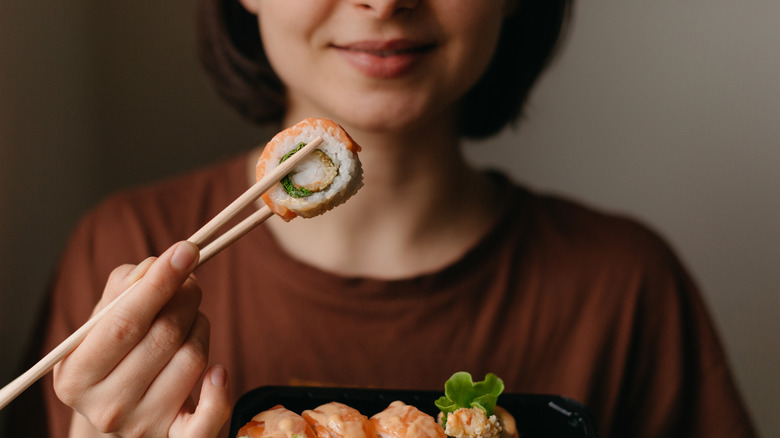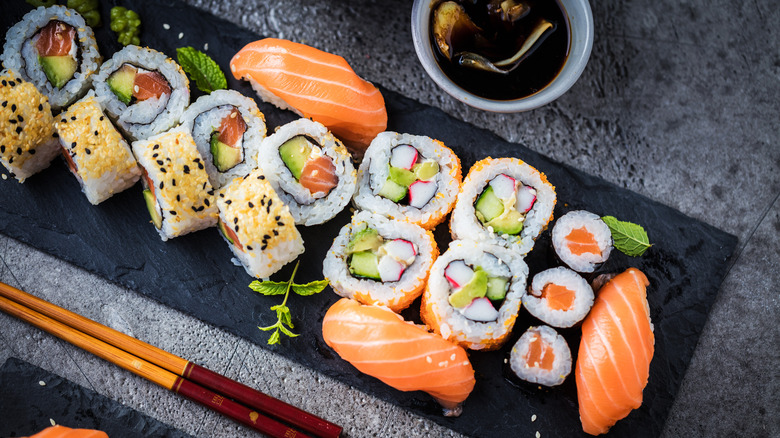You Should Stop Eating Sushi If This Happens To You
Sushi is a traditional Japanese food that has become increasingly popular in the United States and is now served in many restaurants across the county. While sushi can come in variety of styles and presentations, it usually consists of rice, raw fish, seaweed, and vegetables. Although this combination can be quite delicious, eating it too often can potentially put your health at risk (via Insider).
That's because eating large amounts of large fish can lead to mercury poisoning. "All fish contain some level of mercury, but most of the fish that is used in sushi rolls and sashimi are large fish, such as tuna, yellowtail, bluefin, sea bass and lobster, and they have the highest amounts of mercury," Dr. Tania Dempsey, a primary care physician and founder of Armonk Integrative Medicine in Armonk, New York, told Insider.
Mercury poisoning is a toxicity from mercury consumption that can cause tremors, numbness and tingling, memory issues, muscle weakness, and irritability. If you begin to experience any of these symptoms after consuming large quantities of sushi, you should contact your doctor and stop eating fish for a while.
How much sushi should you eat?
Fortunately for sushi lovers, you would have to eat quite a bit of sushi over a period of weeks or even months to get mercury poisoning. Since it's impossible to taste, smell, or see the amount of mercury in fish, however, the best way to prevent mercury poisoning is to consume sushi in moderation (via Women's Health).
"Overall fish consumption should be 12 ounces per week for healthy adults, six to eight ounces per week for pregnant women and children," Barbie Boules, a registered dietitian in Illinois, told Women's Health. For healthy adults who aren't pregnant, this is the equivalent of eating 10 to 15 pieces of sushi per week.
You can also eat more sushi made from fish and seafood with lower mercury levels. Salmon, crab, shrimp, and eel are all much lower in mercury content than larger ocean fish like tuna. This will help lower your weekly mercury intake and allow you to safely eat more sushi.

